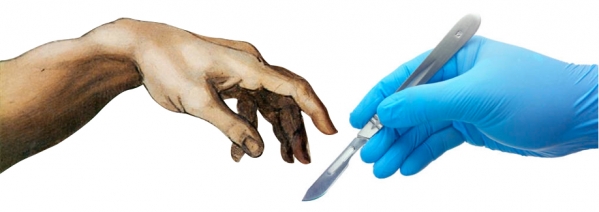Blog
Project funded: Beyond the Classroom: Virtual Reality, Augmented Reality, and Haptics for Enhanced Surgical Training and Education (ImmersiveSurgicalEdu)
Exciting News!
I am thrilled to share that our groundbreaking research project, "Beyond the Classroom: Virtual Reality, Augmented Reality, and Haptics for Enhanced Surgical Training and Education" (ImmersiveSurgicalEdu), has been funded.
Our goal is to combine the capabilities of virtual and augmented reality (VR, AR) technologies with low-cost wearable haptic devices to create a hapto-audio-visual hands-on laboratory environment.
Under the Erasmus+ Cooperation Partnerships in Higher Education KA220-HED call, our initiative earned a significant grant of 250,000 Euros. We appreciate the support and acknowledgement of the significance of our research.
The project will be led by the University of Agder in Norway.
I would also like to extend my gratitude to our project partners: Kaunas University of Technology, Lithuania; the University of Siena, Italy; and the Lithuanian University of Health Sciences, Lithuania.
Together, we will collaborate and push the boundaries of surgical education.
Robotics in Search and Rescue (SAR) Operations: An Ethical and Design Perspective Framework for Response Phase
Exciting news! Our team has just published a new article titled "Robotics in Search and Rescue (SAR) Operations: An Ethical and Design Perspective Framework for Response Phase" in the journal of Applied Sciences. I am grateful to all my co-authors for their incredible contributions!
- Hareesh Chitikena, Filippo Sanfilippo, and Shugen Ma. 2023. "Robotics in Search and Rescue (SAR) Operations: An Ethical and Design Perspective Framework for Response Phase" Applied Sciences 13, no. 3: 1800.
Every year, especially in urban areas, the population density rises quickly. The effects of catastrophes (i.e., war, earthquake, fire, tsunami) on people are therefore significant and grave. Assisting the impacted people will soon involve human-robot Search and Rescue (SAR) operations. Therefore, it is crucial to connect contemporary technology (i.e., robots and cognitive approaches) to SAR to save human lives. However, these operations also call for careful consideration of several factors, including safety, severity, and resources. Hence, ethical issues with technologies in SAR must be taken into consideration at the development stage. In this study, the most relevant ethical and design issues that arise when using robotic and cognitive technology in SAR are discussed with a focus on the response phase. Among the vast variety of SAR robots that are available nowadays, snake robots have shown huge potential; as they could be fitted with sensors and used for transporting tools to hazardous or confined areas that other robots and humans are unable to access. With this perspective, particular emphasis has been put on snake robotics in this study by considering ethical and design issues. This endeavour will contribute to providing a broader knowledge of ethical and technological factors that must be taken into account throughout the design and development of snake robots.
Do check it out: https://www.mdpi.com/2076-3417/13/3/1800
Improved Reptile Search Optimization Algorithm: Application on Regression and Classification Problems
Exciting news! Our team has just published a new article titled "Improved Reptile Search Optimization Algorithm: Application on Regression and Classification Problems" in the journal of Applied Sciences. I am grateful to all my co-authors for their incredible contributions!
- Khan, Muhammad Kamran, Muhammad Hamza Zafar, Saad Rashid, Majad Mansoor, Syed Kumayl Raza Moosavi, and Filippo Sanfilippo. "Improved Reptile Search Optimization Algorithm: Application on Regression and Classification Problems." Applied Sciences 13, no. 2 (2023): 945.
In this study, the authors propose an improved reptile search algorithm (IRSA) that solves the drawbacks of the original RSA, including sluggish convergence speed, high computational complexity, and local minima trapping. A number of test functions were used to evaluate the IRSA, and it was found to have quick convergence, low time complexity, and effective global search. Additionally, we used the IRSA to train hyperparameters for a multi-layer perceptron neural network and a radial basis function neural network and achieved superior classification and prediction capabilities. Do check it out: https://www.mdpi.com/2076-3417/13/2/945
Filippo Sanfilippo


